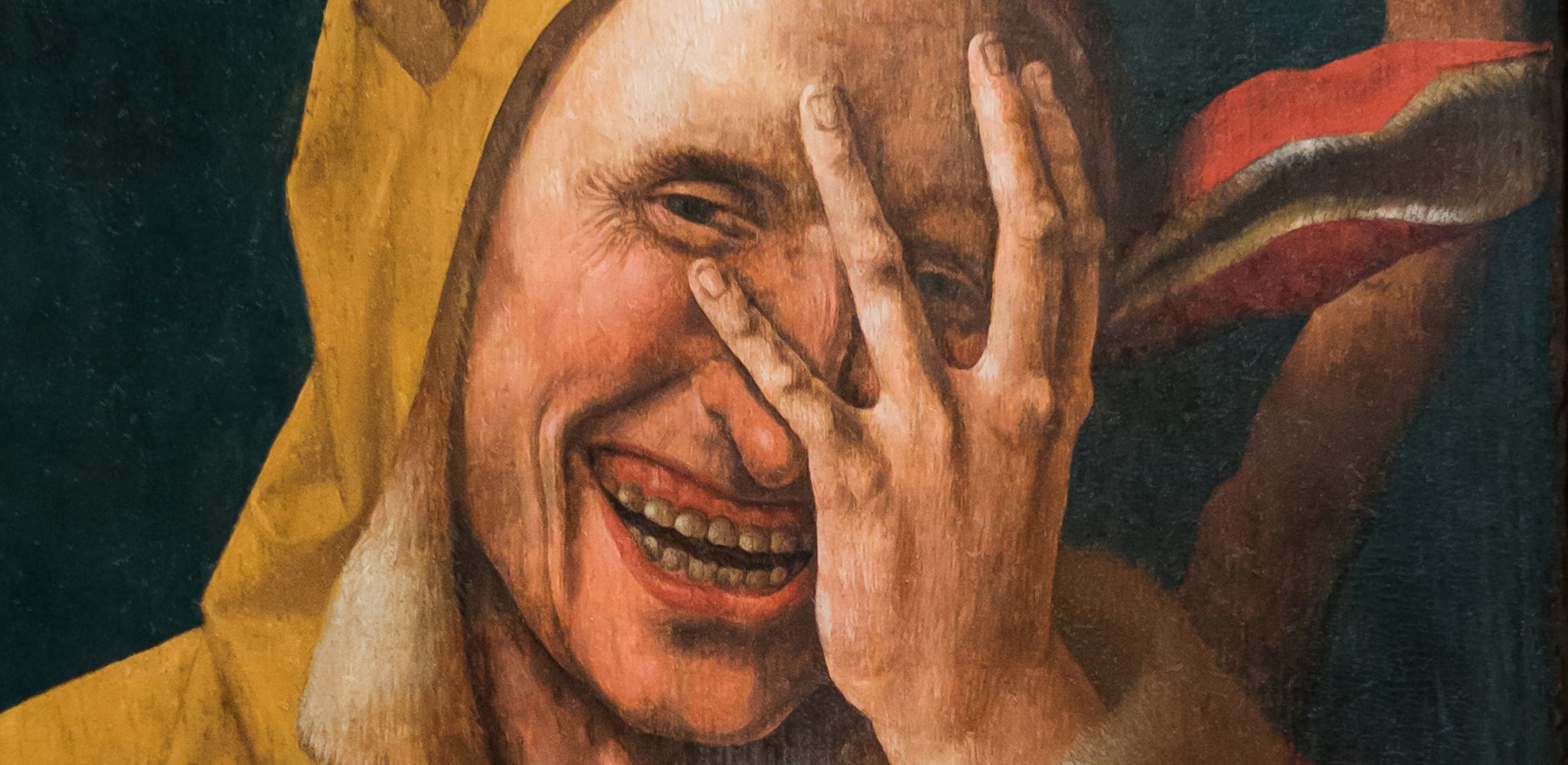This year’s most popular emoji was the ‘tears of joy’; online, everyone is always saying ‘haha’ and ‘LOLLLL’. And yet in real life, nobody is laughing.
Humour online operates differently to real jokes and laughter. Every day group chats and social-media feeds are flooded with declarations of mirth. So many different kinds: ‘lol’, ‘LOL’, ‘lolllllllllllllll’, ‘screeeeech’, ‘cackling’, ‘that has finished me’, ‘it’s done me in’, ‘shshshshs’, ‘hjgkjhjgkjhjgkj’, ‘ajskssjs’ (and other permutations of a chaotic string of letters, which seem to infer that the user was laughing so uncontrollably they had some kind of seizure and lost control of their keyboard), ‘crying’, ‘I am screaming’, ‘I am roaring!’, ‘I am howling’, ‘deceased’, ‘dead’, ‘lmao’, ‘lmaoooooooo’, ‘literally laughing out loud’, ‘haha’ (but, please, never send me this one because it makes me feel like I’m being sternly arrested by a policeman for making the worst joke on the planet), ‘haaaaaaaaaaaaaaaa!’, ‘hahahahahaha’, ‘haaaaaaaaaaaahahahaa’ and of course: ‘😂’ and ‘🤣’.
These are the online expressions of laughter most familiar to me. In your own group chats, you will see a handful of these regularly, as well as your own separate list which will be sort of the same as mine, but sort of different. Internet laughter, like everything on the internet, is simultaneously generic and highly personalised, since expressions are drawn from a seemingly bottomless well of shared context and then curated on a group basis, according to individual preferences, for a customized feel. But, however you normally see it expressed, you will surely agree that everyone on the internet declares themselves to be laughing all the time. (Hard evidence of this anecdotal observation can be seen in 2021’s most popular emoji: ‘😂’.)
In real life (this is where you make a wry joke about how the difference between real life and the internet is no real difference at all) if you say something funny the other person just laughs. Or they might nod their head, curtly, smile and say: “That’s very funny” which means it isn’t funny. Of the myriad online ways, how many correlate to actual laughter? Certainly it can’t be all of them. Or nobody would ever get anything done. Imagine, for a moment, people prowling around by themselves, glancing at their phones and erupting into tears of laughter as they type ‘😂😂😂😂’. Picture everyone walking down the street, on the bus, in restaurants, clutching their phones and laughing their heads off – it’s a terrible thought!
Everyone is always saying ‘I am laughing!!!’ But not actually always laughing. Expressions of laughter online (where, after all, you tend to expect that a lot of what is being said is not really, literally, true) don’t necessarily mean something is funny. They can mean that, and the same expression can be used, alternately, to mean someone is not really laughing, or that they are. Even an expression which is used to mock a bad joke online can come full circle and start to really mean laughing after a while: use something for sarcastic laughter long enough and it becomes funny to use it for real laughter. They can also mean ‘that was entertaining’, ‘this is surprising information’, ‘very clever of you’, ‘how stupid’, ‘I agree’, ‘my goodness’, ‘I am curtly nodding my head while I smile and say: ‘That’s very funny’’, ‘yes, I recognise the cultural artefact you are referring to and I appreciate the spin you have put on it’ (so much of the conversation in group chats and social media messaging revolves around this kind of formulaic riffing off shared context, from WhatsApp memes to quote-tweets).
Mocking someone online is often like this too; phrases aren’t literal and are often a wild dramatization of what is happening. It has become standard practice to share an article, or reply to something you think is stupid with ‘LOLLLL’, ‘😂😂’, or some other variation. Effectively saying: ‘Haha!!! What you said right there!!! God it was so ridiculously stupid it made me laugh!! My god it made me laugh!!’ Often this is done in response to a serious political opinion, or a tragic event. This almost never happens in real life. But online it gestures at the great collective pretence of social media: that, no matter how much time we spend online, nothing that happens there is serious. Being serious or earnest is, in fact, such a faux pas it is deserving of open ridicule. When was the last time someone said something so stupid you openly laughed at them? Have you ever done this to someone and not, in fact, meant it sort of affectionately?
The melodrama of all this is, I think, the most interesting part: ‘You are so stupid I am laughing at you!’, ‘I laughed so much I literally died, it was the end for me’, ‘I laughed my ass off!’, ‘I was laughing so much I lost control of my keyboard.’ This tendency towards wild exaggeration is a feature, not just of humour, but of everything that happens online. The entire tone of the Internet has slid into an extraordinarily, ludicrously melodramatic conversation. From the frequent evocation of therapy language to the quickness with which death and graves are evoked in arguments. Don’t even get me started on ‘accountability’.
Maybe this would happen in any space where everyone is, by design, competing for attention: individuals escalate the theatrics as a means to attract interest and then this becomes widespread until everyone is operating on a kind of maximum drama setting all the time. Or maybe it has emerged, over the past decade, as a way to mask how little is really happening in a space where so many of us spend so much of our time. Online almost nothing is happening and the stakes are hysterically high.
